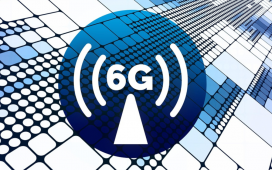Janet Yellen, the US treasury secretary, has urged the EU to intervene urgently to dampen the growing export levels of Chinese cut-price green technology including solar panels and wind turbines, pushing European leaders to move to a full-scale trade war.
At the same time she urged German bank executives on Tuesday to step up efforts to comply with sanctions against Russia and shut down efforts to circumvent them to avoid potential penalties themselves that could see the US cut them off from dollar access.
Her remarks, in Frankfurt, come just hours after the European Commission president, Ursula von der Leyen, gave her strongest hint yet that the EU would join the US and impose tariffs on Chinese electric vehicles after a soon-to-be completed investigation into alleged state subsidies into the automotive industry in China.
Yellen said it behoved the US and its western allies to react in a “united way” as China’s growing production was a threat to industries in all their markets.
Wind turbine manufacturers in the EU have protested that Chinese rivals are undercutting them by 50% in a move that is appealing to cash-strapped state and regional authorities facing targets in reductions of greenhouse gases.
Yellen defended the 100% tariffs, which have been criticised as protectionist and a potential flashpoint that could trigger wider trade wars with China.
“China’s industrial policy may seem remote as we sit here in this room, but if we do not respond strategically and in a united way, the viability of businesses in both our countries and around the world could be at risk,” Yellen said at the Frankfurt School of Finance and Management on Tuesday.
The EU, which sells a greater share of exports to China than the US, is pursuing a policy of de-risking rather than decoupling, and hopes its approach involving investigations into more than 20 trade sectors will focus Beijing’s mind.
China has signalled it will retaliate against any tariffs with potential duties on French brandy, EU wine and dairy products.
Von der Leyen said Europe would take a different approach to the US. While an increase in tariffs is expected, they are unlikely to match the rate imposed by the US.
Von der Leyen told the Financial Times that China had “massive overcapacity” that was “flooding” the EU market with “artificially cheap products”.
She said she expected the investigation into alleged Chinese state subsidies launched last September and due to be finished by 5 June, to conclude there were “excessive production subsidies”.
after newsletter promotion
The response of the EU would be “that the level of duties would correspond to the level of damage done”, she added, indicating that the EU would not impose import duties of 100%.
“It is not about closing the market or protectionism,” she said.
The friction with China comes less than two weeks after President Xi Jinping met von der Leyen and the French president, Emmanuel Macron, in the hope of persuading him to reduce production levels in China.
Yellen’s message on Russian sanctions is believed to be rooted in new evidence seen by the US and EU of circumvention of sanctions by the Kremlin, with goods ordered from multinational tech firms by enterprises in Hong Kong, for instance, ending up in Russia.
“Russia is desperate to obtain critical goods from advanced economies like Germany and the US,” Yellen said. “We must remain vigilant to prevent the Kremlin’s ability to supply its defence industrial base, and to access our financial systems to do so.”











